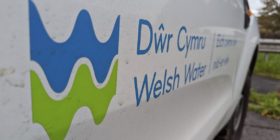Deeside at heart of ambitious ‘Network North Wales’ transport plan

Deeside has been placed at the heart of a new transport vision unveiled today by the Welsh Government, as part of the £13 million Network North Wales plan.
The initiative aims to create an integrated, high-frequency public transport network across the region, with metro-style rail and new bus links designed to drive economic growth.
The plan was officially launched at Wrexham University during Wales’ first-ever Public Transport Summit, where Cabinet Secretary for Transport Ken Skates unveiled the new Network North Wales brand and logo and declared, “Metro is go.”
At the core of the plan is a commitment to improving everyday journeys, connecting communities, and supporting access to employment. For Deeside and Flintshire, key proposals include:
- A test railway station at Deeside Industrial Park, developed with Network Rail to assess demand for permanent rail services to one of Wales’ largest employment hubs.
- Step-free access improvements at Shotton station, supported by Welsh Government match-funding.
- A new bus network to link communities to industrial estates in the Flintshire and Wrexham Investment Zone.
- Pay As You Go tap-in, tap-out ticketing rolled out across the full Wrexham–Liverpool line, including Flintshire stops and connections from Gobowen to Rhyl.
- Speaking at the launch, Ken Skates MS said:
“UK Government, local government, Transport for Wales and English local authorities are working with us to deliver this bold programme of work to better connect communities, with more rail and bus services and greater integration, new stations, new transport routes, new trains, new buses, new technology.”
The wider plan for North Wales includes:
- Immediate commencement of work on the Wrexham–Liverpool line, the first metro-style route.
- Doubling of train services between Wrexham and Chester by May 2025.
- 50% more services on the North Wales Mainline by May 2025 (brought forward from 2026), including a new Llandudno–Liverpool service and an extended Manchester Airport–Holyhead link.
- After rail upgrades at Padeswood, Wrexham–Bidston services will increase to two per hour, with a long-term goal of four direct Wrexham–Liverpool trains per hour by 2035.
- Renaming the Borderlands Line to the Wrexham–Liverpool Line, with station upgrades within the next year.
- Trains wrapped in designs celebrating local communities and football clubs.
- A multi-million-pound electrification innovation fund to plan for a decarbonised, high-frequency future.
- Gateway interchanges developed in Holyhead, Bangor, Caernarfon and Wrexham, combining rail, bus, cycling and walking.
- A new T13 bus service connecting Rhyl, Ruthin, Denbigh and Wrexham.
- Feasibility studies into reopening closed stations and building new ones to support economic growth.
Mr Skates said the plan builds on the success of the South Wales Metro and the £800 million invested in new trains, many of which are already serving North Wales:
“More services. More new trains. A better railway for North Wales. And delivery at an unprecedented pace.”
UK Government ministers also welcomed the collaborative approach.
Rail Minister Lord Hendy said:
“These proposals represent a significant opportunity to transform connectivity across the region and unlock new opportunities for communities.”
Secretary of State for Wales Jo Stevens added:
“Thousands of new jobs are being created in our Wrexham and Flintshire Investment Zone and Freeport in Anglesey. This plan will help connect people to those opportunities.”
First proposed by Welsh Labour in 2016, the North Wales Metro began as a vision to better link North East Wales with the North West of England through an integrated transport system of rail, bus and active travel.
The early focus was on key economic areas like Wrexham, Chester and Deeside, with long-term goals of electrification and multi-modal hubs.
Initially criticised as a pre-election promise, the proposals became formal policy in 2017 through the Welsh Government’s Moving North Wales Forward strategy.
This included plans for a new station at Deeside Industrial Park, better bus-rail integration, and direct links to Liverpool.
In 2018, further investment followed, including a £1.2 million grant and inclusion in the Wales & Borders rail franchise.
Transport for Wales was tasked with delivery, starting with improvements on the Borderlands Line between Wrexham and Bidston.
Since then, additional funding has supported electric buses, park-and-ride schemes, and integrated ticketing, while new stations at Deeside, Greenfield and Broughton have been explored.
By 2021, a full Metro Development Plan was published, outlining a vision to reduce rural isolation, support economic growth, and deliver frequent, sustainable public transport by 2035.
Spotted something? Got a story? Send a Facebook Message | A direct message on Twitter | Email: [email protected] Latest News








